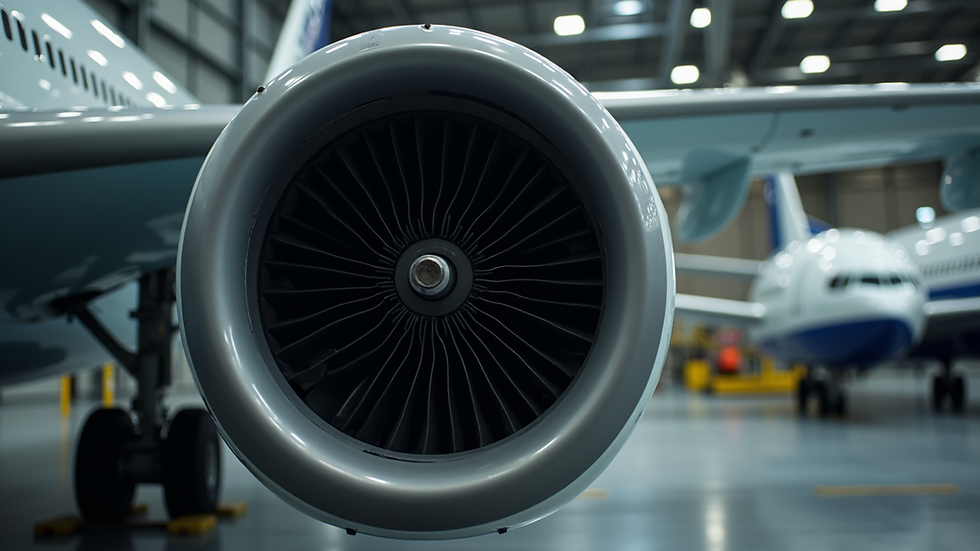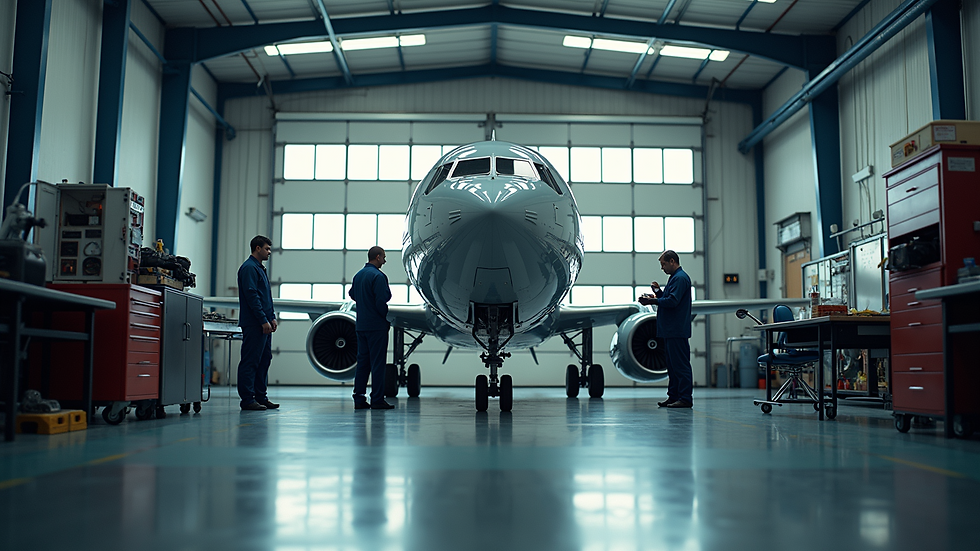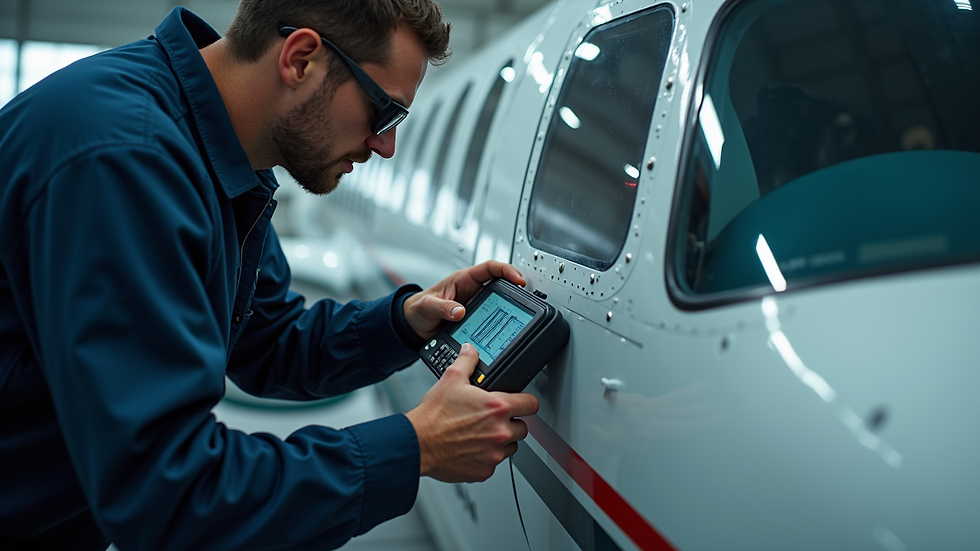Aviation Maintenance Training: Your Path to Certification
- Damon Whitlow

- Jul 30
- 3 min read
Embarking on a career in aviation maintenance requires more than just passion for aircraft. It demands a solid foundation of skills, knowledge, and certification to ensure safety and efficiency in the aviation industry. Whether you are starting fresh or looking to advance your expertise, aviation maintenance skills training is the essential step toward becoming a certified professional.
Understanding the Importance of Aviation Maintenance Skills Training
Aviation maintenance is a critical field that ensures aircraft are safe to fly and operate efficiently. The training involved covers a wide range of technical skills, from inspecting engines to troubleshooting electrical systems. Proper training helps prevent accidents, reduces downtime, and extends the lifespan of aircraft.
Why is this training so vital?
Safety Compliance: Aviation authorities require strict adherence to maintenance standards.
Technical Proficiency: Hands-on experience with aircraft systems is necessary.
Career Advancement: Certification opens doors to better job opportunities and higher pay.
For example, a trainee might learn how to perform routine inspections on a jet engine, identify wear and tear, and replace faulty components. This practical knowledge is what sets certified technicians apart from untrained workers.

How Aviation Maintenance Skills Training Prepares You for Certification
Certification in aviation maintenance is not just a piece of paper; it is proof of your ability to maintain and repair aircraft safely. The training programs are designed to prepare you for the certification exams by combining theoretical knowledge with practical application.
Key Components of Training Programs
Classroom Instruction: Covers aviation regulations, safety protocols, and technical theory.
Hands-On Practice: Real-world experience with aircraft parts and systems.
Simulated Scenarios: Troubleshooting and problem-solving exercises.
Exam Preparation: Guidance on passing written and practical certification tests.
Many programs also offer specialized courses focusing on specific aircraft types or systems, such as avionics or hydraulics. This specialization can make you more competitive in the job market.
For those interested, aviation maintenance training programs provide a structured path to certification, combining all these elements into a comprehensive curriculum.

Essential Skills Developed During Aviation Maintenance Training
Training programs focus on developing a broad set of skills that are crucial for any aviation maintenance technician. These skills ensure that you can handle the complexities of modern aircraft and meet industry standards.
Technical Skills
Mechanical Aptitude: Understanding how engines, landing gear, and control systems work.
Electrical Knowledge: Working with wiring, circuits, and avionics.
Diagnostic Ability: Using tools and software to identify issues quickly.
Soft Skills
Attention to Detail: Spotting even the smallest defects or irregularities.
Problem-Solving: Thinking critically to fix unexpected problems.
Communication: Reporting findings clearly to pilots and engineers.
For example, a technician might use diagnostic software to detect a malfunction in the aircraft’s navigation system and then communicate the issue to the maintenance team for repair.

Steps to Take After Completing Your Training
Once you have completed your aviation maintenance skills training, the next step is to obtain certification. This process typically involves:
Applying for Certification: Submit your training records and application to the relevant aviation authority.
Passing Written Exams: Demonstrate your knowledge of aviation regulations and technical concepts.
Completing Practical Tests: Show your ability to perform maintenance tasks safely and correctly.
Gaining Experience: Some certifications require a minimum number of work hours under supervision.
After certification, continuous learning is important. The aviation industry evolves rapidly, and staying updated with new technologies and regulations is essential for career growth.
Building a Successful Career in Aviation Maintenance
Certification is just the beginning. To build a rewarding career, consider the following tips:
Seek Internships: Gain real-world experience and build professional connections.
Specialize: Focus on areas like avionics, turbine engines, or aircraft structures.
Join Professional Organizations: Network with other technicians and stay informed about industry trends.
Pursue Advanced Certifications: Higher-level certifications can lead to supervisory or inspector roles.
By following these steps, you can position yourself as a valuable asset in the aviation maintenance field and enjoy a stable, well-paying career.
Aviation maintenance skills training is your gateway to a professional and fulfilling career in the aviation industry. With the right training, certification, and ongoing development, you can ensure the safety of aircraft and passengers while advancing your own career goals. Start your journey today by exploring reputable training programs and taking the first step toward certification.





Comments